Research Projects/Clinical Trials
Remote Ischemic Conditioning to Enhance Bimanual Skill Learning and Corticospinal Excitability in Children with Unilateral Cerebral Palsy
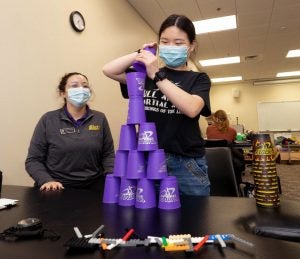
Clinical Trial Identifier: NCT05355883
Brief Summary:
Unilateral cerebral palsy (UCP) is a leading cause of childhood disability. An early brain injury impairs the upper extremity function, bimanual coordination, and impacts the child’s independence. The existing therapeutic interventions have higher training doses and modest effect sizes. Thus, there is a critical need to find an effective priming agent to enhance bimanual skill learning in children with UCP. This study aims to determine the effects of a novel priming agent, remote ischemic conditioning (RIC), when paired with intensive bimanual skill training to enhance bimanual skill learning and to augment skill dependent plasticity in children with UCP.
Ischemic Conditioning to Enhance Function in Children with Cerebral Palsy (I-C-FUN)
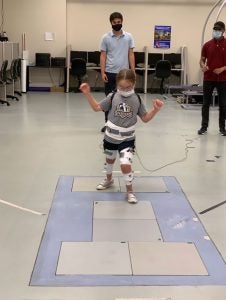 Clinical Trial Identifier: NCT04598711
Clinical Trial Identifier: NCT04598711
Brief Summary:
Ischemic conditioning is a phenomenon in which an organ exposed to a controlled, short-term, local, sublethal ischemia protects from subsequent ischemia. Remote ischemic conditioning is another more practical approach where transient ischemia and reperfusion applied to a remote organ or tissue, protects other organs or tissues from further episodes of lethal ischemia/reperfusion injury. Remote limb ischemic conditioning (RLIC) is a clinically feasible way of performing remote ischemic conditioning where alternating, brief ischemia and reperfusion is delivered with cyclic inflation and deflation of a blood pressure cuff on the arm or leg.
The overall goal of this research is to use ischemic conditioning to enhance muscle power, motor leaning, and mobility in children with CP. Our previous work demonstrated that when paired with strength training, RLIC improved muscle strength and activation in healthy, young adults and motor learning in healthy older adults. The current study extends that work to determine if RLIC enhances muscle power, dynamic balance, and walking performance in children with CP. This Phase II study will yield the necessary information to design and execute subsequent randomized controlled trials in children with CP as well as other neurological conditions.
Cortical Activation and Motor Learning in Healthy Young Adults and Children with Cerebral Palsy (Co-Act and Learn)
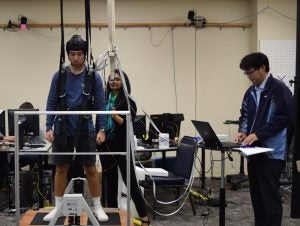 Clinical Trial Identifier: NCT04666181
Clinical Trial Identifier: NCT04666181
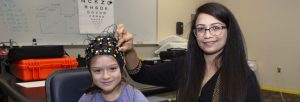
Brief Summary:
The purpose of this research study is to assess the effects of dual-task training using a dynamic balance task and an auditory reaction time task on dual-task performance in healthy young adults and to assess the cortical activity within the prefrontal and sensorimotor cortices in response to dual-task training using functional near infrared spectroscopy (fNIRS). We have obtained data for healthy young adults and continuing to obtain data for children with cerebral palsy.
Impairment and Activity in children with Cerebral Palsy: (IMPACT) Project
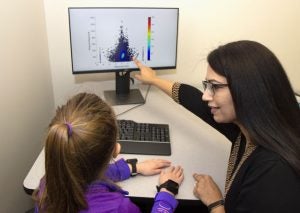 Brief Summary:
Brief Summary:
The goal of this study is to determine the correlation between in-clinic administered standardized assessments of upper extremity capacity (strength, coordination, hand function, and bimanual activity) with the upper extremity performance (24-hour accelerometer data of bilateral upper extremity) in children with cerebral palsy.